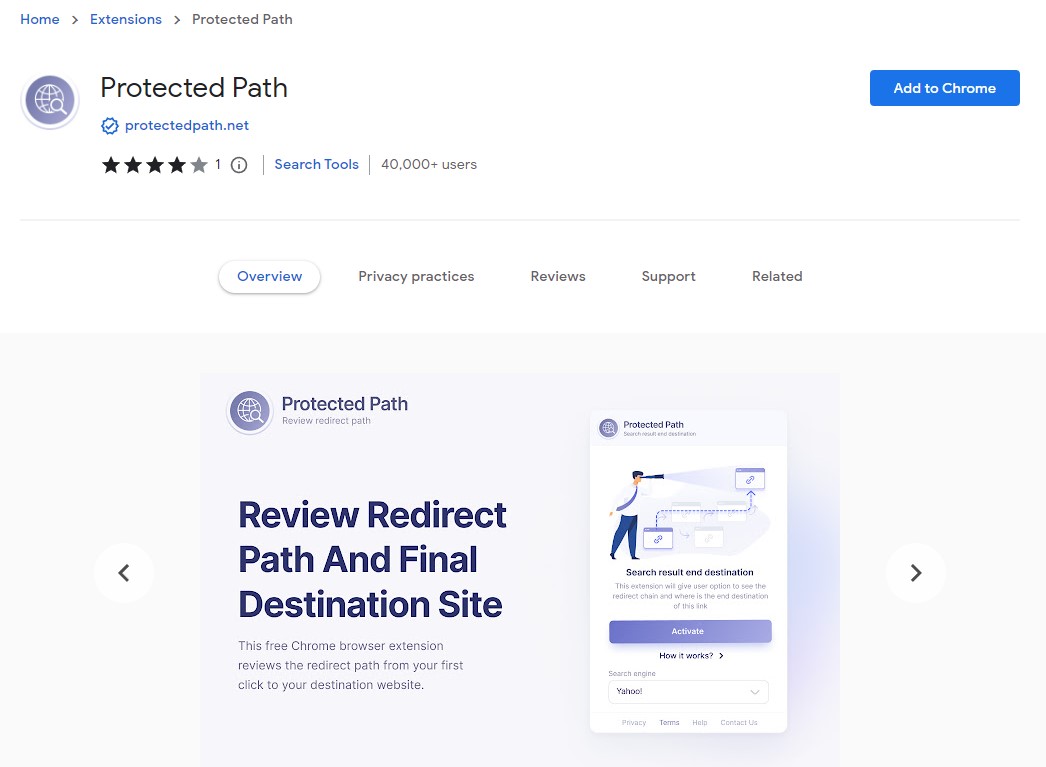The Protected Path search hijacker is an illustration of a common unwanted program; such programs are promoted massively these days. On this page you will see the precise guidance of “Protected Path” hijacker removal in various methods: utilizing anti-malware software and manual removal procedure.
Protected Path – What is it?
“Protected Path” search hijacker is a potentially unwanted application (PUA)1, that is promoted as a plugin for your internet browser. It is usually marketed as an add-on for Chrome or Firefox, that helps to search some particular information, as an example, about sport events, make your browser far more secure, enable downloading of any type of video clip, and so on. Also, this app adds the “Managed by your organization” feature (on Chrome browsers).
Nevertheless, the “Protected Path” plugin is fairly ineffective due to the fact that all such functions are currently embedded to your browser and/or Windows. Such marketing mottos are targeted at low-skilled computer users, like pensioners or schoolchildren. However often even skilled users are getting caught on such an attraction. In particular situations, this hijacker is dispersed along with free apps.
Here is a short details for the Protected Path hijacker
| NAME | Protected Path |
| Site | Protectedpath.net |
| Hosting | AS13335 Cloudflare, Inc. United States, San Francisco |
| Infection Type | Browser Hijacker, Unwanted Application |
| IP Address | 104.21.70.19 |
| Symptoms | Changed search engine; search queries redirection |
| Similar behavior | Tab, Planet, Sqoo |
| Fix Tool | To remove possible virus infections, try to scan your PC |
How harmful is Protected Path hijacker?
Besides its impracticality, Protected Path hijacker is likewise pretty hazardous for browser use. It changes your search engine to its particular – Protectedpath.net, and also changes your background, putting its watermark on your wallpaper (or, occasionally, altering it to default with the specified symptom).
Apart from visual modifications done by Protected Path hijacker, you may notice that some of your search queries are redirecting to the unfamiliar sites, full of web links and ads – so-called doorway websites. Such sites can contain links for malware downloads. The chance of redirecting increases if you try to launch Google search page by force.
However all these activities are far more bothersome than really destructive. The largest danger, primarily for people who have a great deal of confidential information in their browsers, is embedded in information collecting functionalities. Cookie files, conversations, often-visited web pages, as well as other activities are easily collected by Protected Path hijacker.
How to remove Protected Path search hijacker?
- Download and install GridinSoft Anti-Malware.
- Open GridinSoft Anti-Malware and perform a “Standard scan“.
- “Move to quarantine” all items.
- Open “Tools” tab – Press “Reset Browser Settings“.
- Select proper browser and options – Click “Reset”.
- Restart your computer.
Browser hijackers are almost always fairly easy to deal with. Most of the times, they have a separate app that can be located in the list of installed apps. Because of the specific distribution tactic of Protected Path hijacker, it can be easily tracked and deleted manually. Nonetheless, if you got Protected Path in the bundle with a free program, your system can be contaminated with much more dangerous malware – trojans, spyware or even ransomware. That’s why I’d suggest you use anti-malware tools to delete the Protected Path PUA and all other malware.
You can utilize Microsoft Defender2 – it is capable of discovering and clearing away different malware, including named hijacker. However, major malware, that can exist on your computer in the discussed case, can disable the Windows antivirus program by modifying the Group Policies. To stay clear of such circumstances, it is better to utilize GridinSoft Anti-Malware.
To detect and remove all malicious programs on your PC with GridinSoft Anti-Malware, it’s better to use Standard or Full scan. Quick Scan is not able to find all the malicious programs, because it checks only the most popular registry entries and directories.
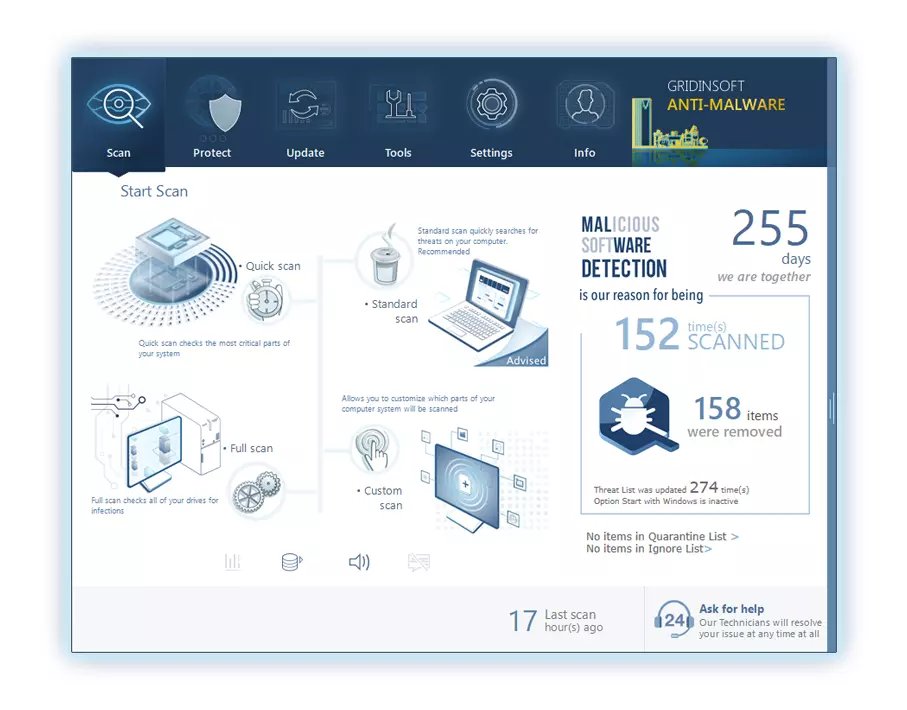
You can see the detected malware sorted by their possible harm till the scan process. But to choose any actions against malicious programs, you need to wait until the scan is finished, or to stop the scan.
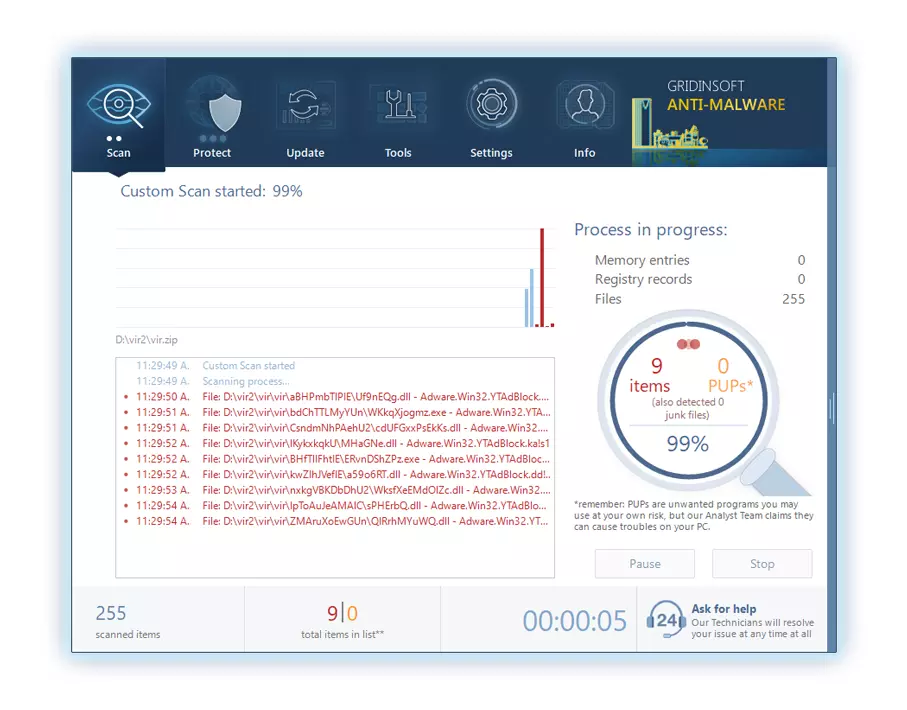
To set the action for each detected malicious or unwanted program, click the arrow in front of the name of the detected malicious program. By default, all the viruses will be moved to quarantine.
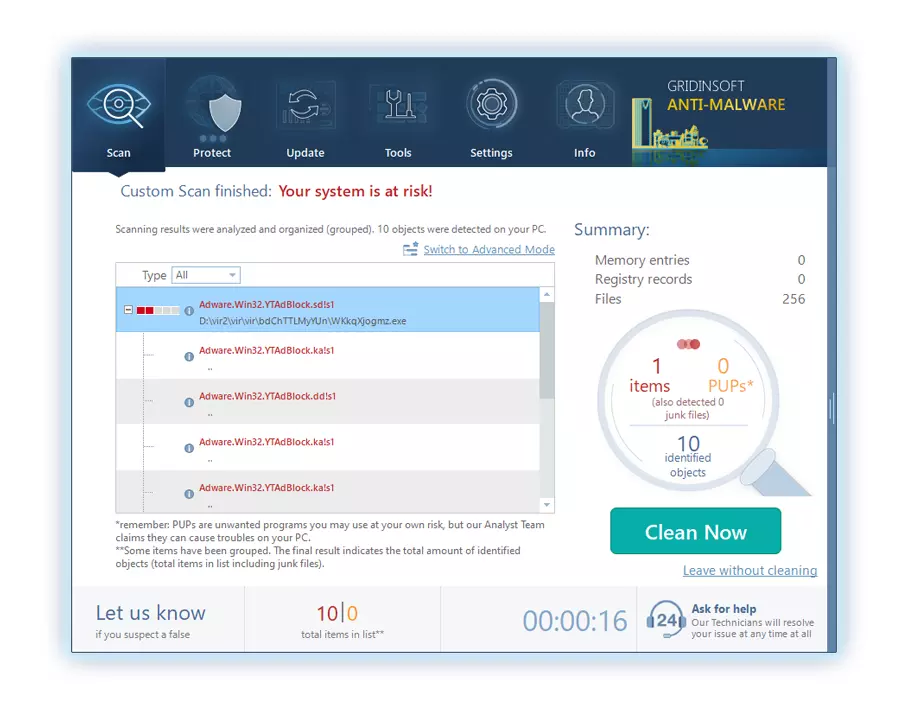
Reverting browser settings to original ones
To reset your browser settings, you need to use the Reset Browser Settings option. This action is not able to be intercepted by any virus, hence, you will surely see the result. This option can be located in the Tools tab.
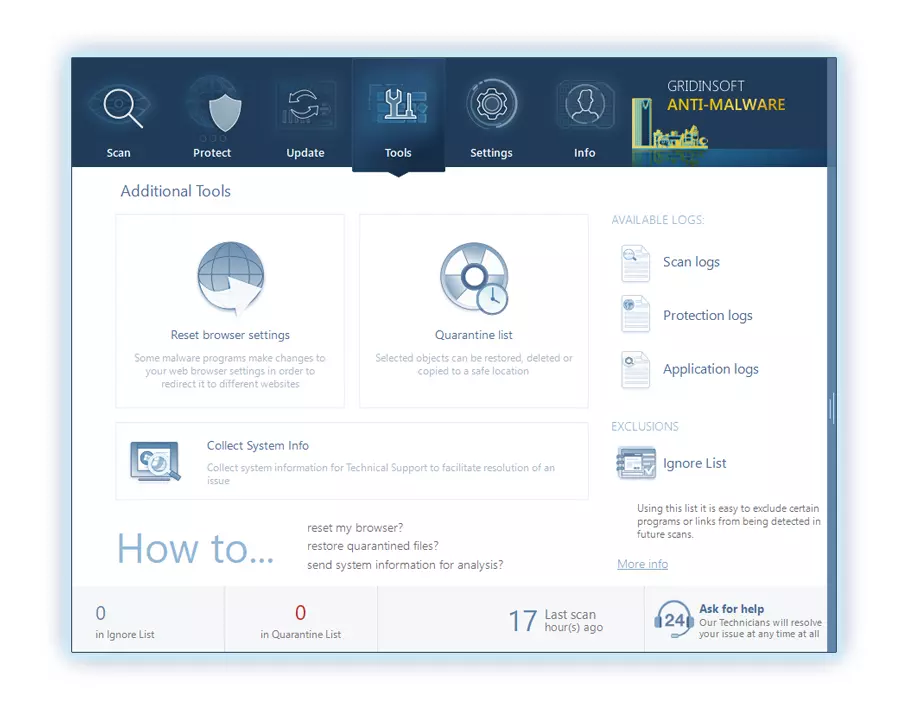
After pressing the Reset Browser Settings option, the menu will be shown, where you can choose, which settings will be reverted to the original.
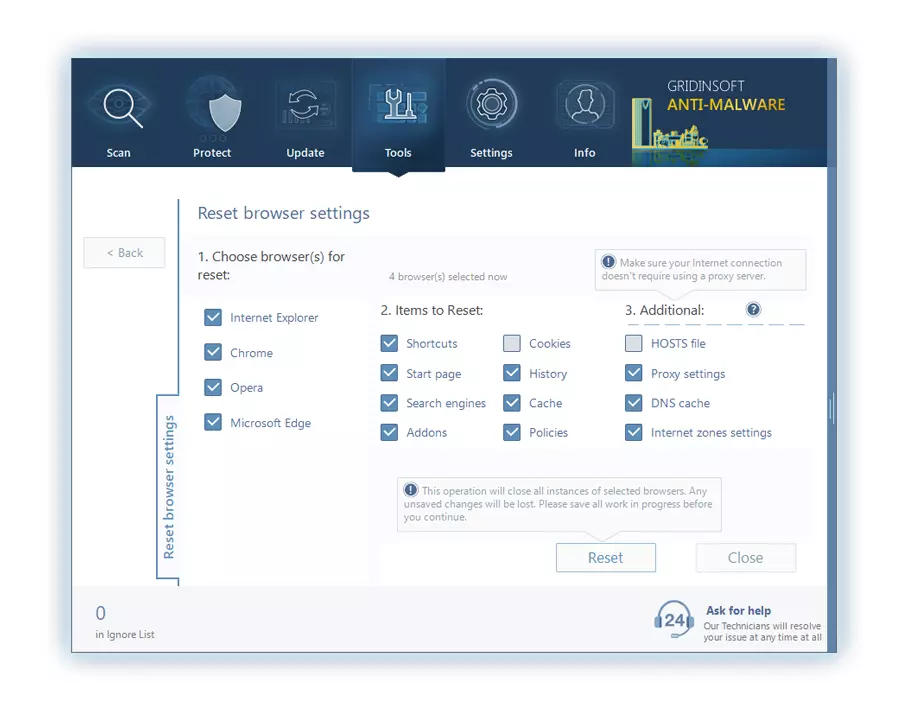
Deleteing Protected Path hijacker manually
Besides using anti-malware software for browser restoration, you may choose the “Reset browser settings” function, which is usually embedded in all popular browsers.
To reset Edge, do the following steps :
- Open “Settings and more” tab in upper right corner, then find here “Settings” button. In the appeared menu, choose “Reset settings” option :
- After picking the Reset Settings option, you will see the following menu, stating about the settings which will be reverted to original :
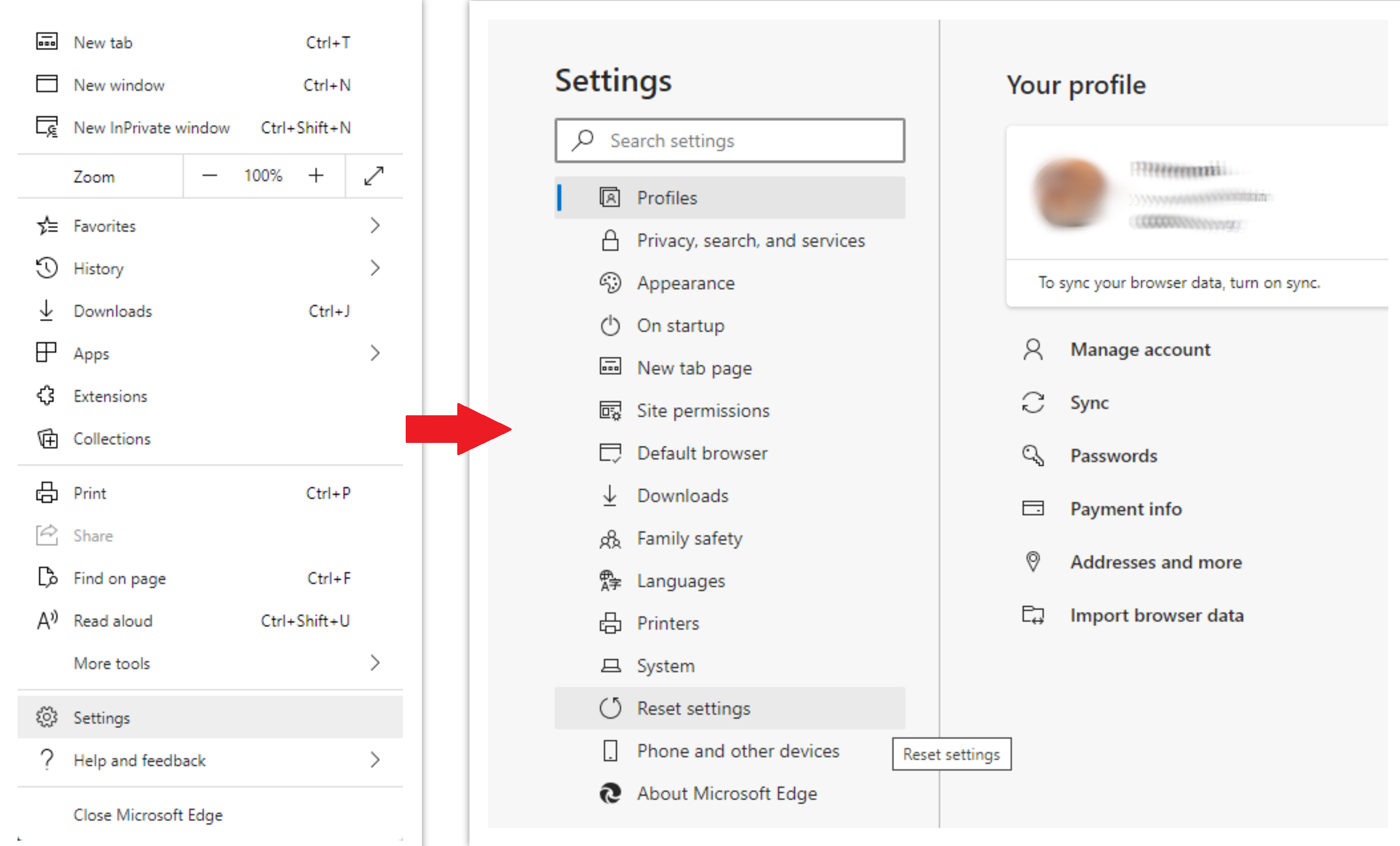
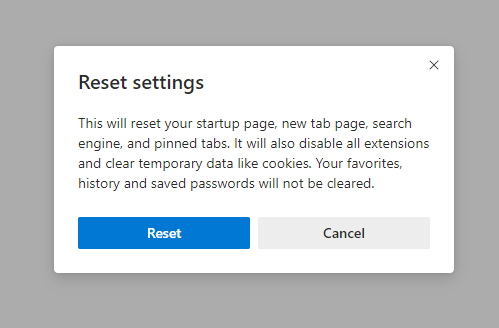
For Mozilla Firefox, do the next actions :
- Open Menu tab (three strips in upper right corner) and click the “Help” button. In the appeared menu choose “troubleshooting information” :
- In the next screen, find the “Refresh Firefox” option :
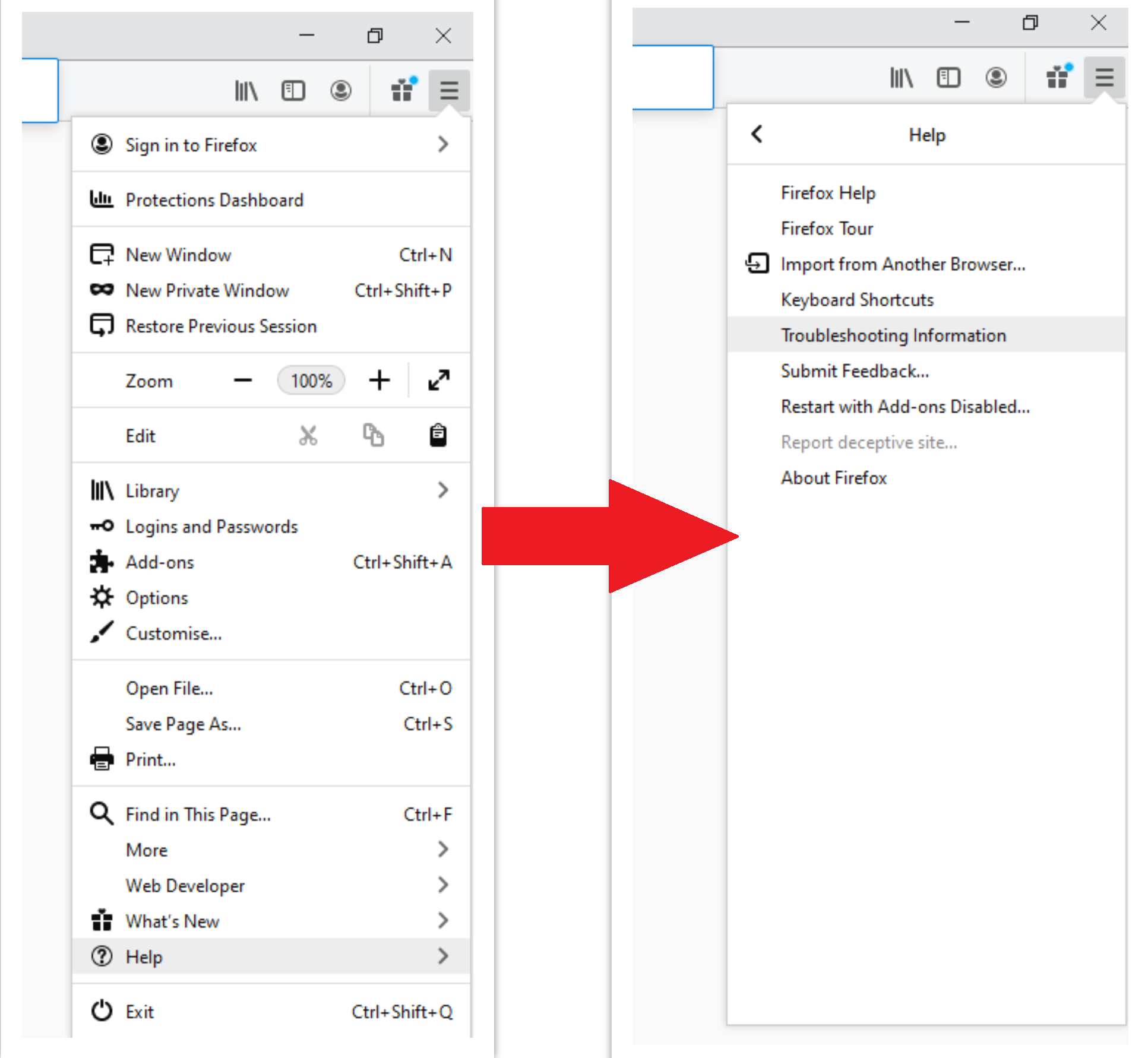
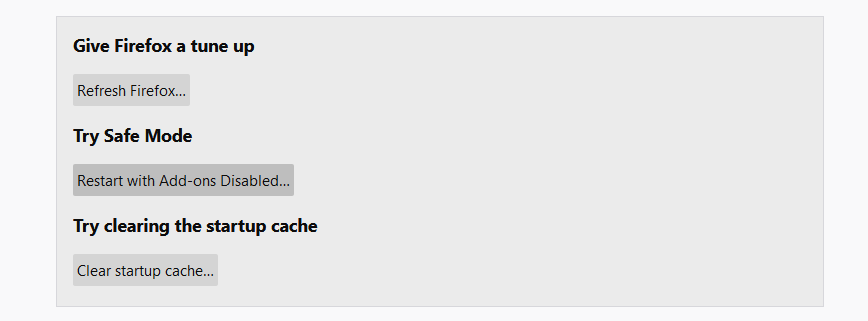
After choosing this option, you will see the next message :
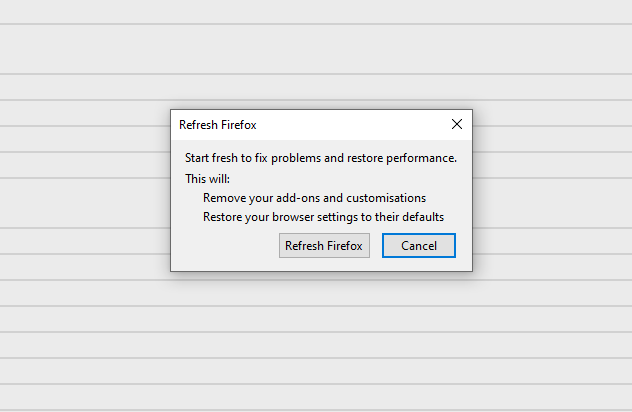
If you use Google Chrome
- Open Settings tab, find the “Advanced” button. In the extended tab choose the “Reset and clean up” button :
- In the appeared list, click on the “Restore settings to their original defaults” :
- Finally, you will see the window, where you can see all the settings which will be reset to default :
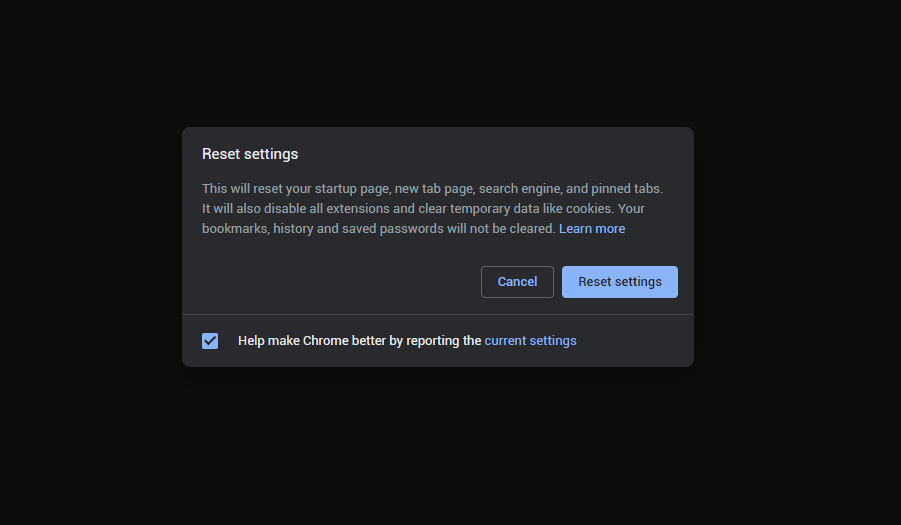
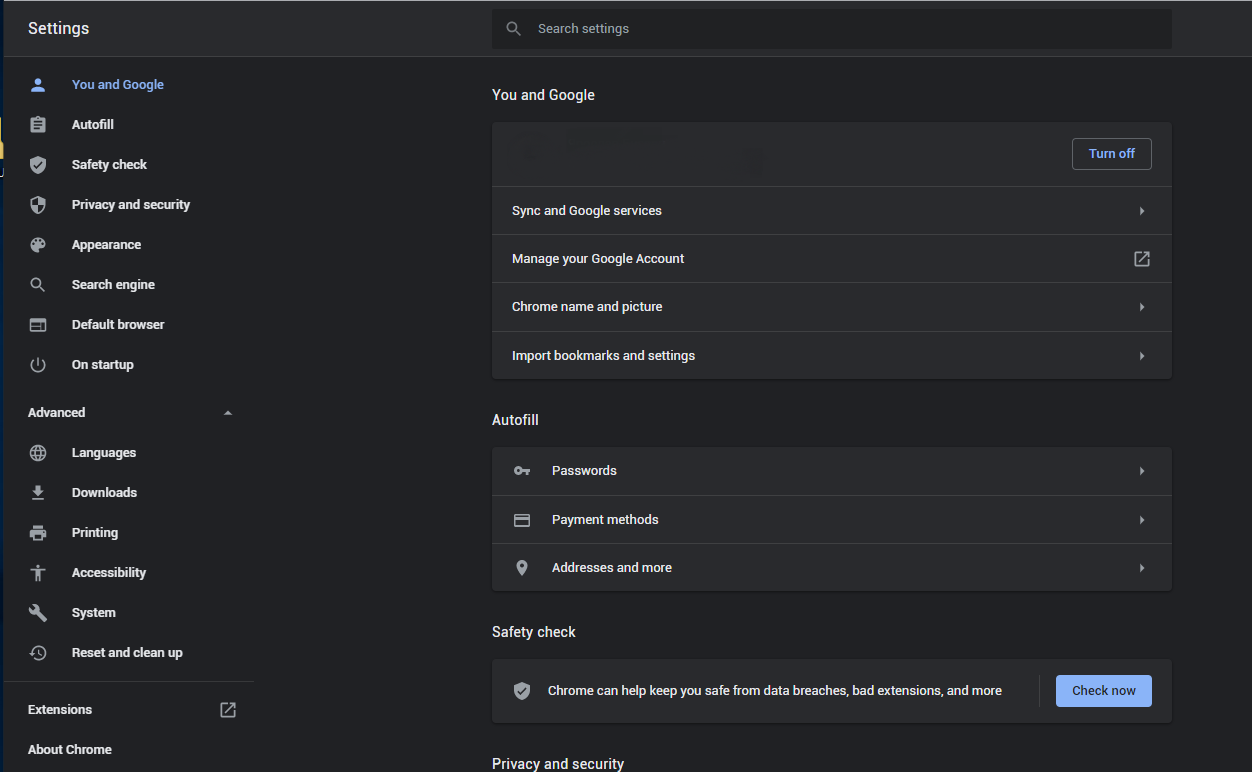
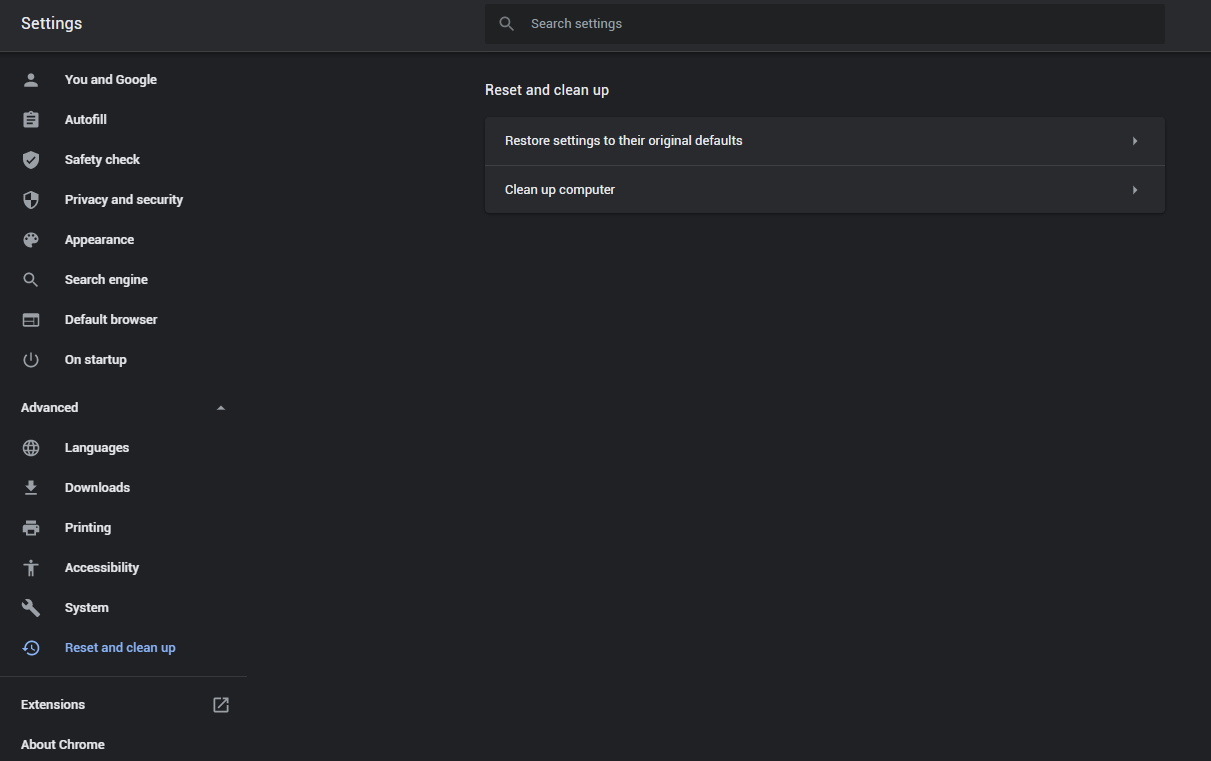
Opera can be reset in the next way
- Open Settings menu by pressing the gear icon in the toolbar (left side of the browser window), then click “Advanced” option, and choose “Browser” button in the drop-down list. Scroll down, to the bottom of the settings menu. Find there “Restore settings to their original defaults” option :
- After clicking the “Restore settings…” button, you will see the window, where all settings, which will be reset, are shown :
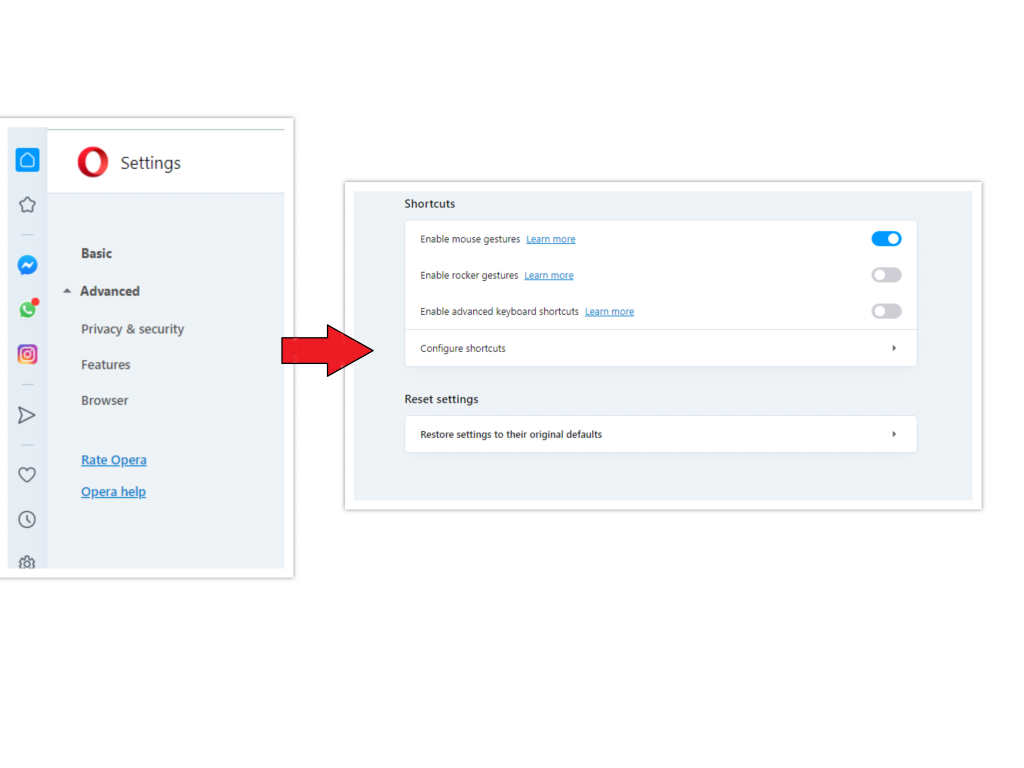
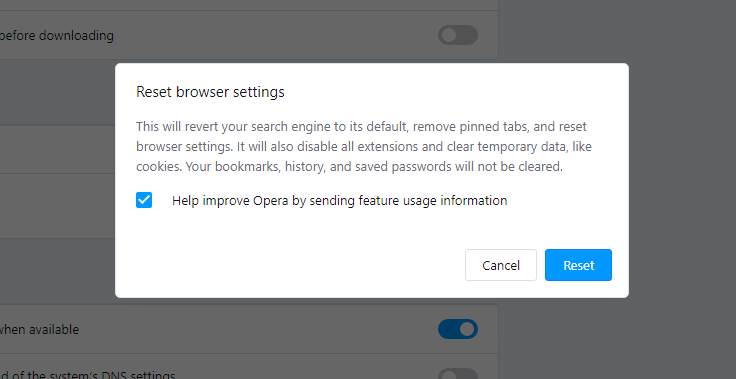
As an afterword, I want to say that time plays against you and your PC. The activity of browser hijacker must be stopped as soon as possible, because of the possibility of other malware injection. This malware can be downloaded autonomously, or offered for you to download in one of the windows with advertisements, which are shown to you by the hijacker. You need to act as fast as you can.
I need your help to share this guide.
Browser hijackers are among the largest and also disruptive kinds of malware. I published this article to help you, so I wish you will help me to make the computer world completely clean of malware. Please, share this article in the social networks you use – Twitter, Reddit, Facebook – wherever.
.
Wilbur WoodhamHow to Remove Protected Path?
Name: Protected Path
Description: Protected Path - a lot of users became a victim of browser hijacker. I have a lot of friends who literally bombed me with the questions like “how to remove Protected Path?”. In this article we will show you how to deal with Protected Path (Protectedpath.net), which may corrupt your browser’s correct performance, and create a lot of troubles while you are working.
Operating System: Windows
Application Category: Browser Hijacker
User Review
( votes)References
- More information about PUAs
- Detailed review of Microsoft Defender


